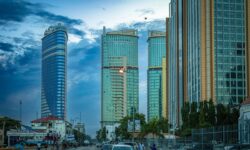Ivory Coast’s Mango Industry: Opportunities and Challenges
With an annual production of 150,000 tons, Ivory Coast ranks third among mango producers in West Africa, following Nigeria and Guinea. However, much of this agricultural potential is wasted: significant amounts of fruit rot in orchards due to inadequate processing. Only 2% of national production is converted into by-products like dried mango, representing a missed opportunity for the local economy.
Industrial Transformation Goal
Aware of this challenge, Ivory Coast is ramping up efforts to industrialize its mango sector. One of the most promising initiatives is the construction of a mango juice production plant in Ferkessédougou, planned for early 2025. Supported by the Agricultural Value Chain Development Support Program (PADFA), this project requires an estimated investment of $22 million. The goal? To attract private sector investment to finance this infrastructure and revitalize the local economy.
Challenges in Financing and Taxation
Despite the enthusiasm generated by these initiatives, significant obstacles hinder their implementation. The cost of industrial equipment, compounded by high tariffs, poses a major barrier. For example, a processing machine costing 25 million CFA francs incurs customs fees of around 10 million CFA francs. These costs significantly reduce the profitability of investments.
Additionally, the drying units necessary for mango processing require several years of operation to be considered viable. Operations are typically limited to the three-month mango season, further complicating the economic equation.
Diversification and Innovation: Solutions in Development
To overcome these challenges, some factories are diversifying their operations by processing other fruits such as pineapples or coconuts. This strategy allows them to maximize equipment use throughout the year and amortize costs. Furthermore, efforts are ongoing to improve machine maintenance, though the need to import spare parts remains a major limitation.
Towards International Recognition
Ivory Coast’s mango sector is aiming to achieve Protected Geographical Indication (PGI) status. This label will enhance the competitiveness of its products in international markets. Not only will this recognition boost exports, but it will also ensure fairer incomes for local producers.

















